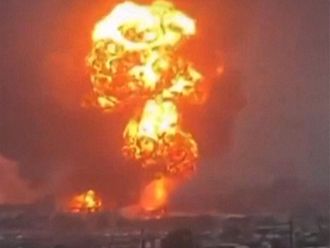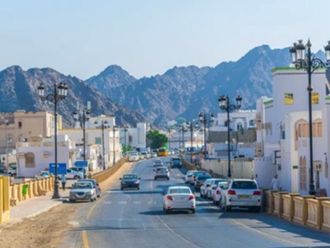Jaar, Yemen For 15 months, residents of the southern Yemeni town of Jaar lived under the watchful gaze of armed young men who swore allegiance to Al Qaida, woke people at dawn to pray, and chopped off the hands of thieves in the name of Islamic law.
But the relief that they felt when government troops drove Al Qaida’s local allies out last week was tempered with worry, as looters ransacked abandoned houses in their wake.
In a town on the frontline of a US-backed war on Al Qaida — whose alleged members the Pentagon targets with drone strikes — some wondered whether a state whose neglect was a main theme of Islamist rhetoric would now manage to govern.
Although some of Jaar’s 100,000 people saw Islamist rule as a nightmare, they acknowledged it had also been a respite from the lawlessness that gripped Yemen during the uprising that eventually forced President Ali Abdullah Saleh to step down.
Gangsters
“People felt secure and safe [under Al Qaida],” said Mohammad Mohsin Bakr, a street vendor. “People would leave their shops open when they went to pray and when we came back our goods were untouched,” he added.
Bakr said before Islamist militants took over Jaar, vendors like himself were forced to make regular payments to local gangsters in order to carry on their businesses, and that shakedowns resumed the day the Islamists fled.
Such crimes have been carried out regularly in other parts of southern Yemen, including its second city and port, Aden.
Early in last year’s uprising against Saleh, Ansar Al Sharia (Partisans of Islamic Law) seized three cities in Abyan province, taking its provincial capital Zinjibar after Jaar, which they renamed “the emirate of Waqar”.
They also captured the port town of Shaqra and Azzan, a town in the adjacent Shabwa province.
The Yemeni army, backed by US air strikes, drove the militants from Jaar and Zinjibar last Tuesday after five weeks of fighting that killed hundreds on both sides, and captured their last Abyan stronghold on Friday.
The offensive appeared to end the experiment with Islamist rule in Jaar, one of the areas Ansar Al Sharia seized with scarcely a fight from Saleh’s troops, some of whom had been withdrawn to parts of the country where protests were growing.
Inspired by Somali Islamist group Al Shabab across the Gulf of Aden, the militants set up Sharia courts and trumpeted punishments given to robbers and murderers, to the satisfaction of some of the population in a conservative Muslim country.
“Al Qaida members made us feel safe, they cut off the hands of thieves,” said Jaar resident Ali Ba Ali. “This is part of Sharia, those who steal should have their hands cut off.”
It was not the first time Islamists claimed the right to rule territory in Yemen, where tribal and factional loyalties have often counted for more than the writ of the state, whose presence was negligible in Abyan.
Righteous government
In the late 1990’s Aden-Abyan Islamic Army, made up of jihadists who fought the Soviet Union in Afghanistan in 1980s, called for the establishment of an Islamic state in the impoverished country.
But in Zinjibar, a resident surveying the city’s bullet-riddled buildings and the destroyed tanks scattered across its main road ridiculed the Islamist claim of righteous government, asking: “What have they gained from causing this, what have they gained from cutting people’s hands?”
Salem Mohammad Bisher of Jaar was indifferent to the militants’ ideological claims, and worried more that a government which had never provided him essential services would fail where its Islamist foes had succeeded.
“We haven’t had water or electricity since the day before yesterday,” Bisher said, sheltering from the summer heat in the shadow of his house. “We have never had such disruptions under Al Qaida rule.”
The province’s governor, who along with Yemen’s defence minister and the army commander in the south, toured a city filled with ruined buildings and unexploded ordnance, acknowledged the state now had to show it could deliver what its foes had.
“The big challenge is reconstruction and the return of water and electricity,” Jamal Al Aqel said.












